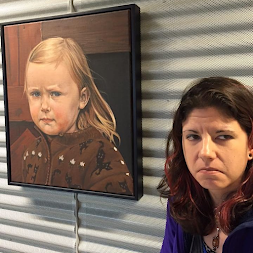Photo by Nikhil Prasad on Unsplash
Before I became a published creative writer, I was an academic author. The academic publishing industry is a different racket–a very lucrative one, in fact. Higher education institutions grant the degrees and pay the salaries of the academics who research and write the papers and books that, in turn, the universities and colleges then buy for their libraries. The Guardian quipped, “It is as if the New Yorker or the Economist demanded that journalists write and edit each other’s work for free, and asked the government to foot the bill.”
Being used to a safety net, I pursued traditional publishing avenues first and secured a contract with a boutique romance publisher for my paranormal shifter romance series.
Two ideas anchored my decision.
The first is that I am a slow writer. I can write reliably and well (I am an English professor, after all), but I need to mull and ponder as I scribble on many, many, many sheets. Adding in my ADHD means that most things in my life take longer than they might for others. My perfectionist tendencies–carefully honed in my academic career–also mean I find it difficult to let go of my work before I have reworked it multiple times. As a result, the 20 books to 50K method is not for me: publishing a book a month, or even every three months, is impossible. I do not mean to disparage anyone who has success with this model. I just know myself and my limits.
The second is that I want to write books that people will read. In my academic field, I can guarantee that a dozen people will read my latest paper on apocalyptic imagery in the Middle English translation of Catherine of Siena’s revelations, and I have presented papers to thirty or forty people at a time (yes, my field really is that small). With the prospect of reaching hundreds of readers–maybe even more some day?–in mind, I happily pored over Calls for Submissions from smaller publishers as I considered ways to get my foot in the door. I’m not afraid to write to market and I’m used to editors telling me to revise my work, especially if it means my stories will find readers. The experience of working with a traditional publisher is a fantastic way for me, at this stage in my life and writing career, to learn the ropes and reach an audience.
And yet…
I have many friends who are self-published and I hope one day to have the confidence to do this. The shiny prize of higher royalties glimmers out of reach, as I consider all the responsibilities of indie publishing–so many decisions, so many expenses! It seems overwhelming. This is my opinion, for the point I am on my author journey: not only because I have so much to learn, but also because I am still working full time while establishing myself as a creative author.
I took a step in the indie direction by wangling a spot in the FaRo anthology, Once Upon a Forbidden Desire (pre-order available now). The amazing folks of FaRoFeb, led by HR Moore, have put together a fantastic volume, herding 20 author-cats through the entire publication process, from drafting and revisions, to copy-editing and formatting, and then on to publishing, distributing, and marketing the volume. It has truly been a wonder to watch it come together.
Here are two things I’ve learned from this process:
- Collaboration is both wonderful and hard. Academic publishing is bossier and simpler: peer reviewers critique papers; editors make decisions about book covers, formatting, and so on; publishers set the schedule and take care of printing, distribution, and marketing. The academic writer is only one cog in the big machine. In contrast, publishing creative work independently means making a lot of decisions oneself. The FaRo anthology team had to balance the experiences and desires of many strong, autonomous women–all of whom had valuable expertise. The skilful negotiation and consensus-building I witnessed revealed the big heart of the group. There was so much curiosity, patience, willingness to listen and learn, and a strong desire to lift everyone up that inspired me to no end. I am grateful to be a part of this group because they make me better–not just a better writer (and having had the honor of copy-editing and proofreading several of the papers allowed me to learn from them), but also a better colleague and author.
- Indie publishing is not for the faint of heart. It takes drive, smarts, perspicuity, and persistence to succeed. And that doesn’t include the writing part of the author job. We’ve all heard horror stories of someone who slaps some words on a page, sticks it up on Kindle as a book, and then is surprised that nobody reads it–or that they receive terrible reviews. The authors I know are polar opposites to those boogeymen. The amazing women I worked with on this project spent hours pulling together long-tail keywords lists, creating Instagram images and reels, fixing commas, converting ellipses and correcting other formatting errors, preparing ARC reader forms and blog tours, and so many other tasks that it would astound you if you haven’t been through this yourself. It truly felt like our own Fellowship pulling together to get the Ring–erm, book–to the Mordor of KDP and D2D.
I am grateful to have had these first experiences with both traditional and indie publishing. There is no single response to the question of how and where to publish; there are as many answers as there are authors. All of it is part of your individual journey.
Remember, this is a long trip and you will learn from every experience you have. Don’t forget to pack your pipe-weed and ask for help from your friends!
Yours,
Mimi B. Rose
































.png)




